The debacle of gas and electric is just getting warmer with recent roll-outs of new models and the government pouring in subsidies.
When buying a used electric car, most people think about the cost of gas, insurance, and potential maintenance. But one family was shocked to learn that the replacement battery for their used Ford Focus Electric cost more than the car itself.
The family was more than shocked when they found out that the batteries for their used EV Ford Focus ended up costing more than the car itself.
$11,000 for the car and $14,000 for only the battery.
That is a huge expense.
This raises an important question: What happens when the replacement battery costs more than the car? In the short term, the cost may not be worth it, and the car may end up being scrapped. However, in the long term, advancements in technology could lead to lower battery costs and make it a more viable option.
There is definitely a lot more to this story than we can comprehend. Let’s dwell on the details.
What Happened?
So, one fine day the parents of teen girl Avery Siwinski bought her a second-hand EV Ford Focus for $11,000. Everything was all smiles and roses for six months as the teenager loved her cute little car.
The family from Florida bought an Electric Ford with 60,000 miles and it ran smoothly for six months.
The 17-year-old lost her father to stage 4 cancer at this time and the car too started showing aging signs. Unfortunately, after those initial few months, several problems occurred.
The old EV battery gave up.
Avery took the problem to her family and her grandfather Ray, stepped in to find out what is the problem. Shockingly the problem came out to be the biggest jolt.
Not only was the quoted battery bill $3,000 more than what they paid for the car, but it did not even include labor costs. Turns out, this is pretty much the common problem among all Ford Focus EV owners.
But that’s not even the primary issue here. Even if the family had both been willing and able to afford the fee, there wasn’t a replacement battery available to purchase in any case.
The icing on the cake was, the replacement battery pack is not available as the company has stopped making them.
Now the EV is standing still like a prop as Ford is willing to shell out a whopping $500 to buy the EV back.
Ray gave a piece of warning news to everyone thinking to invest in EVs to a local news channel following all the trouble with her granddaughter.
Ray says:
“If you’re buying a new one, you have to realize there is no second-hand market right now because the manufacturers are not supporting the cars.”
Why the Link to Green Agenda?
Recently, the Siwinksi family faced costly electric vehicle problems but still couldn’t find a solution.
However, this has not stopped the Biden administration from pushing for Americans to switch to electric cars.
This push is part of the larger green agenda in hopes of reducing carbon emissions and fighting climate change.
But what happens when the cost to replace the battery in your electric car is more expensive than the car itself? This problem has already been seen in some models, like the Nissan Leaf. And with the push for electric vehicles only increasing, this issue will continue to affect more and more car owners.
Karl Rove, the former George W. Bush senior advisor, talks about the average cost of EVs and gas cars while bashing the green agenda by the democrat Senator Debbie Stabenow. He says the average cost of owning an EV is $56,400 while talking to FOX business.
What’s funny is that he mentions it as the Average cost of EVs to Compact/SUV gas cars category. Such a political narrative can make one feel agitated or reluctant to shift to EV.
EVs currently in production are not cheap and slightly touch the more luxurious category of automobiles. However, with affordable Chevrolet Bolt and Nissan Leaf, there is still hope for cheaper alternatives in the future.
Sadly, right now price increases are here to stay. Why are EVs so expensive?
Batteries aren’t cheap.
This story first appeared on Breitbart.com but fails to reveal more about the battery pack and warranty details. Ford now covers 8 years or 100,000 miles but chances are the scenario was different back in 2014.
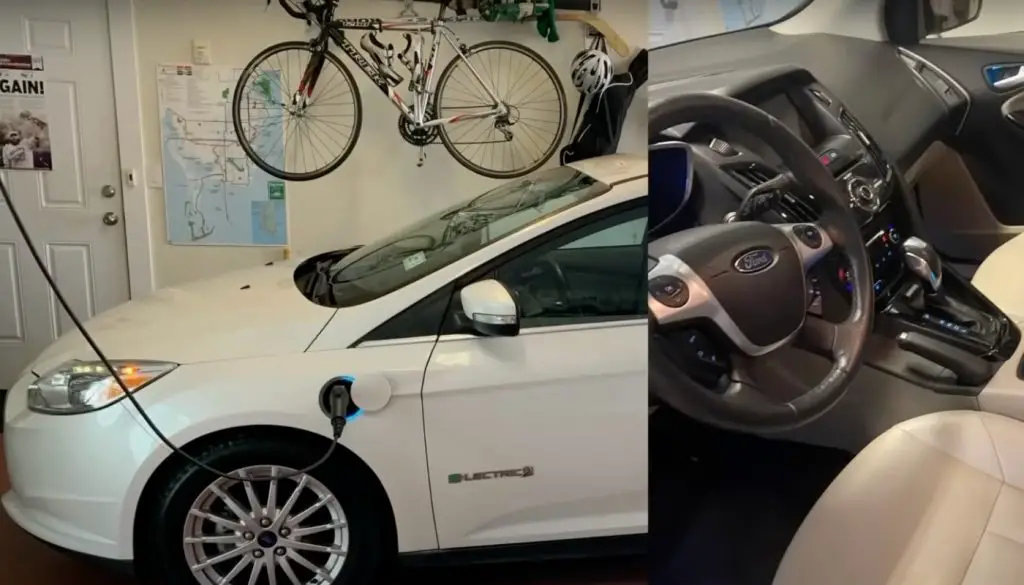
How Much Does It Cost to Replace Batteries in Electric Cars?
How much does it actually cost to replace a battery pack on an old EV car? According to a study by AAA, it can range anywhere from $5,000 to over $15,000 – potentially more than the value of the car itself. And while they do have longer lifespans than gas-powered engines, eventually they will need to be replaced.
The batteries in hybrids, such as the Toyota Prius, are less expensive to replace than those in larger vehicles, like the Ford F-150 Lightning pickup truck or say Tesla Model S.
Toyota Prius could do it for $2,700 but a Tesla battery replacement could cost you around $20,000.
This raises the question: Should you opt for battery replacement or buy a new car?
Is it really worth it for the average American to switch to electric cars when they may end up spending more in the long run? It’s important to consider the financial implications and weigh them against the environmental benefits.
While we should all do our part to reduce our carbon footprint, it’s important to consider the long-term financial repercussions of making the switch to electric vehicles.
It may not be as cost-effective as we initially thought. However, there is no denying the fact that EVs are certainly the future of the automobile industry.
The road to that future sure looks bumpy!
Maybe it’s time for the Biden administration to reconsider its push for electric vehicles and come up with better solutions that will benefit both the environment and American car owners.
You can’t ignore the potential financial burden this could create for families. Let’s not sacrifice wallets in the name of going green.
Why Battery Replacement Is Costly?
Have you ever heard the saying, “the car is only worth as much as its battery”? Well, in the case of electric vehicles (EVs), this statement rings especially true.
Replacing an EV battery can be exorbitantly expensive – often costing more than the actual value of the car itself. So why is replacing an EV battery so pricy?
First of all, EV batteries are larger and have higher energy density than traditional car batteries. This means that they contain more costly materials, such as lithium and cobalt.
The technology used in EV batteries is constantly evolving and improving, leading to even higher production costs.
On top of that, EV batteries are designed to last for a significant portion of the vehicle’s lifetime. So when it does come time for replacement, the technology used in the battery may already be outdated and costly to produce.
But don’t let this discourage you from making the switch to an EV!
Many car manufacturers offer long-term battery warranties and there are government incentives in place to encourage EV adoption.
Plus, the environmental benefits of using an EV far outweigh the potential cost of replacing the battery down the line.
How to Avoid Such Incidents?
The case with Ford Focus is quite unfortunate and a bit misleading for future EV owners contemplating the switch. However, there is no harm to be on the safer side and being assured of a healthy battery pack for a prolonged period.
There is only much you can do to keep the battery in pristine condition and prevent battery degradation. According to recent research, a new-age EV battery life could span 500,000 miles! Tesla claims to have clocked 200,000 miles on its Tesla Model X.
New EVs come with safeguards against overcharging, over-discharging, and overheating. Even still, there are some added measures you can take to extend the usable lifespan of your EV’s battery.
- Try to keep your battery level above 20%. Frequent “deep discharge” or draining the battery past 20% can decrease its overall longevity.
- Avoid leaving your EV in extreme temperatures, whether hot or cold. EVs like the temperature the human body likes. This can hurt the battery’s performance and lifespan.
- Make sure to regularly check your EV’s battery health through its onboard computer system.
- Stick to DC Fast Charge for occasions.
- Minor damage or degradation can be fixed with simple maintenance and upkeep, but catching any issues early on will greatly extend the life of your EV’s battery.
- With proper care and attention, that shiny new EV battery could potentially last a lifetime.
Bottomline
EVs are a very young industry and, as with any new technology, there are bound to be some growing pains and hiccups. This one is one such example that explains how Ford Focus battery could become an issue. However, these do not outweigh the long-term benefits of embracing electric vehicles.
The anti-EV websites might try to scare you with warnings about battery fires or charging infrastructure limitations, but the reality is that conventional gasoline cars also have their own set of hazards and challenges.
The EV industry is constantly improving and adapting to address any concerns.
What can we do to prevent this issue from happening? One solution is to invest in renewable energy sources such as solar power to charge electric vehicles. This not only helps reduce emissions from traditional gasoline-powered cars, but it can also potentially lower the cost of replacement batteries in the future.
It’s important to consider all potential costs when purchasing a used electric car and to think about ways we can work towards a more sustainable transportation system. Otherwise, we may end up with a pricey dilemma on our hands.
In the end, making the switch to EVs is crucial for reducing our dependence on fossil fuels and protecting the environment for future generations. Don’t let fear-mongering stand in the way of progress – go electric!

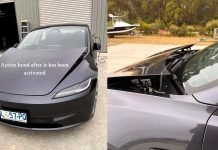
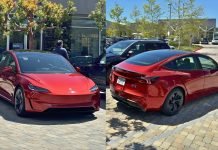


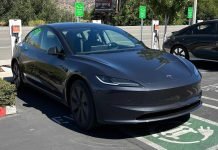












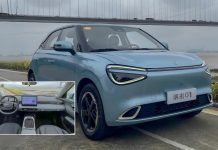
LFP batteries are tough and should last longer than the batteries with nickel etc. I’m waiting for NIO to bring their cars out with battery swapping, which will take the battery worry away. Also over charging too many times is not recommended. Thanks for the article 😊
The replacement battery cost also negates any fuel savings from owning an ev.
Way off the mark
This exactly why I’m never buying an EV unless they solve this problem. Fortunately, I’ll probably be dead by the time they figure out how to do it.
This is not a problem anymore. The Focus EV was a compliance car, with a passively cooled battery. As the articles states, passively cooled batteries degrade fast. What the arcticle doesn’t say is that no car today is sold with those anymore aside fom the Leaf, that’s being discontinued. Most new EVs batteries will likely outlast the car.
tell that to the scores of people who need batteries for there 3 year old tesla’s.as for outlast mt petrol wont happen i drive a tdi and maintain it they are known to last allot longer then gas and a replacement engine will cost around 5k
I wouldnt take an electric vehicle if you Gave it to me! NO, thank you… it’s insane!
That’s an insane (and ignorant) comment.
The sad thing is, most battery pack failures are due to a single or a few cells that need to be replaced. The only problem is, there are few to no private shops that do this kind of work yet, or only do it for specific vehicles and battery packs.
I’m glad these “no EV” people keep their piston cars along with their box set tvs, rotary dial phones, 8 track tapes, betamax players…i live in the west coast area, there are many battery maker shops that can replace battery packs at fraction of dealership cost. Now over 4 years, I’m happy to daily zoom pass the 95% sluggish piston cars around me. I bought a used 1 year old EV, first thing i did was, to learn how to charge & maintain the battery packs. Less than 0.38 cents per gallon equivalent, no oil change no smog check no gas stations., buy a charger from eBay and plug into my 240 volt outlet
Always read the warranty very carefully. Most manufacturers have a long warranty, about 8 years and 160,000km on the battery and five years unlimited km on the rest of the car EXCEPT TESLA who only have 80,000km on the rest of the car so beware a second hand Tesla with lots of questionable workmanship to fail.
I love the anti-EV articles structured to instil fear and concern to the uneducated.
This article is a rare occurrence and likely for reasons not included in the careful wording.
There are so many benefits to an EV vehicle and fuel is only one of them. Maintenance costs are much lower. My first service is 30,000 kms (I believe Tesla don’t even schedule one). The brakes will typically outlast the ownership (regenrative motor braking is quite powerful and does most of the braking while putting some charge back in the battery), no motor cooling system, no oil, no vibration, no engine noise. The motor will last virtually for ever as it’s a balanced rotary motion with no wearing parts (brushless motor).
There’s not much to do. The car even stays cleaner as there’s no exhaust at the rear and no brake dust on your nice Alloy rims.
Keeping an ICE car long enough will likely mean a series of expensive services and major repairs (brakes, alternator, cooling system, batteries, engine repairs/replacement). It’s wearing out from the first time you start it and a modern IC engine is expensive to replace.
The wrong fuel in a Diesel, wrong oil used, lack of maintenance in general and everything from new fuel/injector system to engine replacement is very possible. Have seen plenty of this but never any anti-ICE articles written.
Compare the running costs of both over an extended period and there may be a shock as to the true cost of ICE ownership vs EV.
I once bought a used car, got a great deal on it but it needed a transmission. I was shocked when I realized the transmission cost more than the car. I ended up not repairing it and selling at a small lost.
This article is misleading. The buyer bought an EV that needed a battery and like me, didn’t do their research first. End of story
Jeff has bought an electric car, Jeff is trying to justify his expensive purchase, you won’t hear from Jeff when his battery is no good or when he runs out of charge in the middle of nowhere or when he is queuing for a charge when there aren’t enough chargers and also you won’t hrsryfrom him when the cost of charging is more than fuel and the government start charging cost per mile or road tax. You don’t hear of the cost to the environment for producing/ disposal of batteries from Jeff because Jeff has been brainwashed! I will keep my diesel car and enjoy it when the government and public back pedal when they realise this costly mistake, remember Betamax.
Jeff must live in Mr Rogers land of make believe. No one would only tell about the pros of something. They works be honest and tell you about the cons so you would be fully informed.
Jeff has bought an electric car, Jeff is trying to justify his expensive purchase, you won’t hear from Jeff when his battery is no good or when he runs out of charge in the middle of nowhere or when he is queuing for a charge when there aren’t enough chargers and also you won’t hrsryfrom him when the cost of charging is more than fuel and the government start charging cost per mile or road tax. You don’t hear of the cost to the environment for producing/ disposal of batteries from Jeff because Jeff has been brainwashed! I will keep my diesel car and enjoy it when the government and public back pedal when they realise this costly mistake, remember Betamax.
I keep hearing the battery was this type or the battery was faulty, even the writer who is a ev fan tesla has clocked 200000.
So does he know if the tesla battery was changed or drivern in extreme conditions or just used in optimum opetating conditions.
Seems the ev cult is ducking and weaving over many home truths coming to being
Hydrogen is more practical way to travel if you really think you are saving the planet. Ev’s seem only practical where electricity is produced by a dam. If ev manufactures really cared about the environment they would have solar chargers intergrated on the vehicle.
Your absolutely right Billy, If the Governments were serious about this So Called Global Warming !! Then they should “Demand “ that every new House / Office Building / Department Store/ Everything . Be self sufficient “OFF THE GRID !!!
While cases like this are extreme, it doesn’t say we shouldn’t continue the shift to Hybrids or EVs, instead it seems like there needs to be regulations either to standardize batteries to where you can purchase a 3rd party battery like you can other parts, or to require manufacturers to make them available for a reasonable price or a new longer minimum warranty period to avoid cars going to the scrapyard early
until battries come down to like 10% of what they cost now ill stick to petrol
this article is misleading to say that EV lasts longer than ice engines is ridiculous. you can leave on ice engine 100 years. put fuel and it will start. let’s see on an EV do that. the EVs are only good as they’re warranty and you have to be careful because some companies like Tesla will go to great extents not to honor their warranty so more or less figure. you have eight years with a car so divide that by the amount of money you paid for it to see your true cost
Did I read this wrong. Got a firm quote for a non produced factory fresh battery. Maybe there is something the mechanic knows that we should all know. Or maybe he found a used battery with a fee hours left in it’s life.
The family bought a poorly engineered 1st gen EV compliance car and now there is no support for it. Cry me a river. The family should have done their homework before buying such a car.
They essentially bought the Jalopy of EVs. What do you expect?